So you want to be an electrician? That’s great! Electricians are in high demand, and the skills you learn can be used in a variety of industries. But what are the must-have skills for every electrician? In this guide, we will answer that question and give you some tips on how to develop those skills. Whether you are just starting out or you are a seasoned professional, these tips will help you stay ahead of the competition!
Electrician Job in General
Electricians are responsible for installing, maintaining, and repairing electrical systems. They work in a variety of settings, including residential, commercial, and industrial buildings. Electricians must be able to read and interpret blueprints and technical manuals. They must also be familiar with the National Electrical Code (NEC).
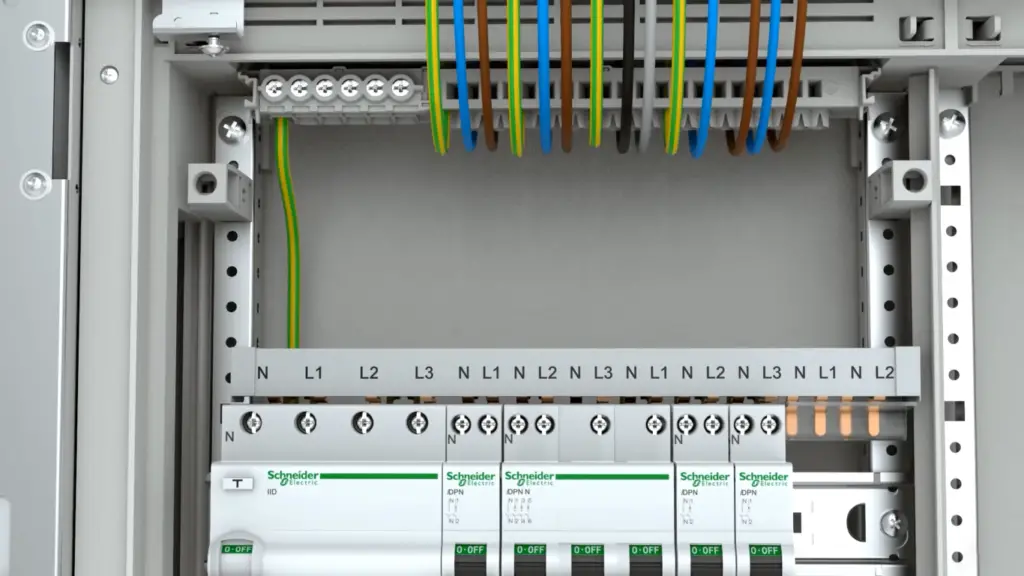
Some electricians specialize in specific types of electrical work, such as telecommunications, security systems, or lighting. Others work in a generalist capacity, performing all kinds of electrical work.
But no matter what your specialization is, your responsibilities as an electrician will always fall into one of three broad categories.
Installing new electrical systems
The first and most common task electricians are called on to perform is installing new electrical systems. This might involve anything from wiring a new home to installing a solar panel array.
Installing new electrical systems can be both mentally and physically demanding work. Electricians must be able to lift heavy objects, work in cramped spaces, and withstand long periods of standing. More on this later!
Maintaining existing electrical systems
Another common task electricians are responsible for is maintaining existing electrical systems. This includes tasks like inspecting wiring for damage, testing electrical equipment to ensure it’s working properly, and replacing worn or broken parts.
Maintaining existing electrical systems also includes keeping up with new technologies and developments in the field. Electricians need to stay up-to-date on the latest advances in order to be able to properly maintain complex electrical systems.
Troubleshooting electrical problems
The other responsibility of an electrician is to troubleshoot electrical problems. This involves diagnosing the problem, locating the source of the problem, and then repairing it.
Electricians use a variety of tools to troubleshoot electrical problems. These include voltage testers, ammeters, and ohmmeters. Electricians also use computerized diagnostic tools to troubleshoot complex electrical problems. [1], [2], [3], [4]
Must-Have Skills for Electrician
To be successful in any of these roles, you’ll need to have certain skills. But what exactly are the must-have skills for electricians? In this section we will split the most necessary skills into categories and discuss what each one entails in more detail.
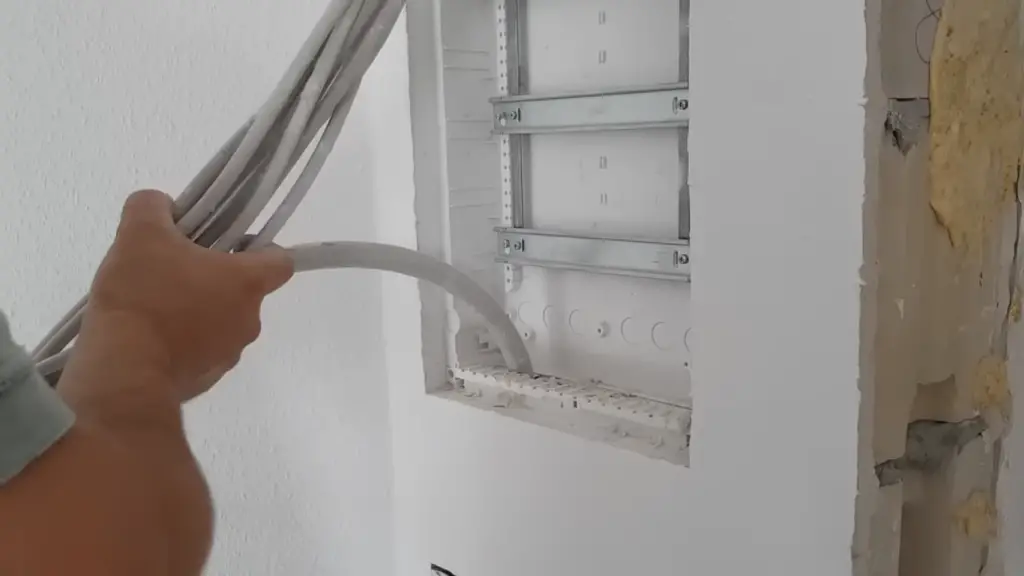
Technical Skills
The most important skills for electricians are technical skills. Technical skills refer to the abilities and knowledge required to perform specific tasks. For electricians, these skills are necessary for safely and effectively completing electrical work. While some of these skills may be learned through on-the-job training or formal education, others must be acquired through experience.
Electricians need to have a deep understanding of electrical theory and principles. They must also be able to apply this knowledge to real-world situations.
The ability to instal cables, wiring and electrical equipment
Troubleshooting skills are essential for electricians because they often deal with complex systems
Electricians must be able to safely and correctly install cables, wiring and other electrical equipment. This includes knowing how to select the appropriate type and size of wire for the job, as well as properly connecting wires and devices. To do this work, electricians must have a strong understanding of electrical code. They must also be able to read blueprints and other technical drawings.
Using appropriate power tools
There’s a time and place for every tool. When it comes to electrical work, it’s easy to get confused. That’s because there are a variety of different tools available, each designed for a specific purpose.
That’s why it’s important for electricians to have a deep understanding of the different types of tools available and when it’s appropriate to use each one.
For example, a drill is a common tool that can be used for a variety of tasks. However, there are many different types of drills and bits, each designed for a specific purpose. If an electrician were to use the wrong type of one for a particular task, they could damage the equipment or injure themselves.
In addition to using the right tool for the job, electricians must also know how to use power tools safely. Power tools can be dangerous if they are not used properly. Electricians need to be aware of the potential hazards associated with power tools and take precautions to avoid injuries.
The ability to read and understand blueprints
As an electrician, being able to read and understand blueprints is an absolutely essential skill. After all, if you don’t know how to interpret the blueprint, you won’t be able to do your job properly.
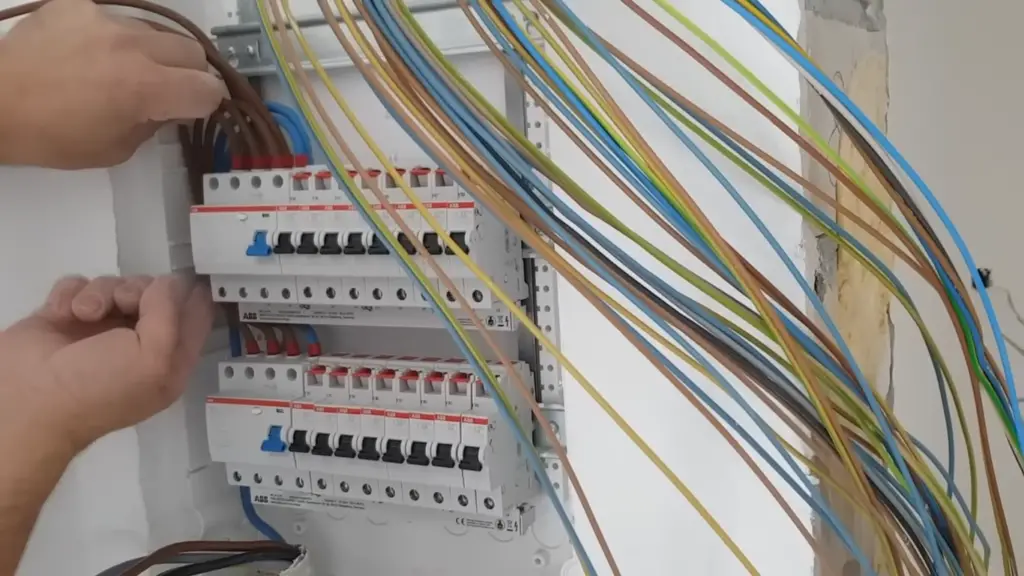
The first thing you need to be able to do is identify the different symbols that are used on blueprints. These symbols represent different electrical components, and understanding what they mean is crucial for being able to properly install them.
Once you know what the symbols represent, you need to be able to follow the lines on the blueprint in order to determine where each component needs to be installed. This can sometimes be tricky, as the lines may cross or intersect in complex ways. However, with a bit of practice, you should be able to follow them without too much trouble.
The ability to understand all procedures and safety rules
Of course, the ability to understand and follow all safety procedures and rules is an absolute must for anyone working in the electrical industry. Electricians need to be able to identify potential risks and take the necessary precautions to avoid them.This includes being aware of the dangers of electricity, knowing how to safely use tools and equipment, and understanding the correct procedures for carrying out various tasks.
The ability to repair and replace existing equipment
An electrician’s most important skill is being able to repair and replace existing electrical equipment. This includes anything from light fixtures and outlets to circuit breakers and wiring. To do this effectively, you need to have a strong understanding of how electrical systems work. You should also be familiar with the various tools and techniques used to repair and replace electrical equipment.
Physical skills
Besides being knowledgeable about the trade, electricians need to have excellent physical skills. After all, the job often requires working in difficult positions and with heavy equipment!
Ability to lift heavy weights
As an electrician, you will often need to lift and carry heavy equipment. This could be anything from ladders and scaffolding to wire reels and conduit pipes. Not only do you need to be able to lift these items, but you also need to know how to lift them properly to avoid injury.
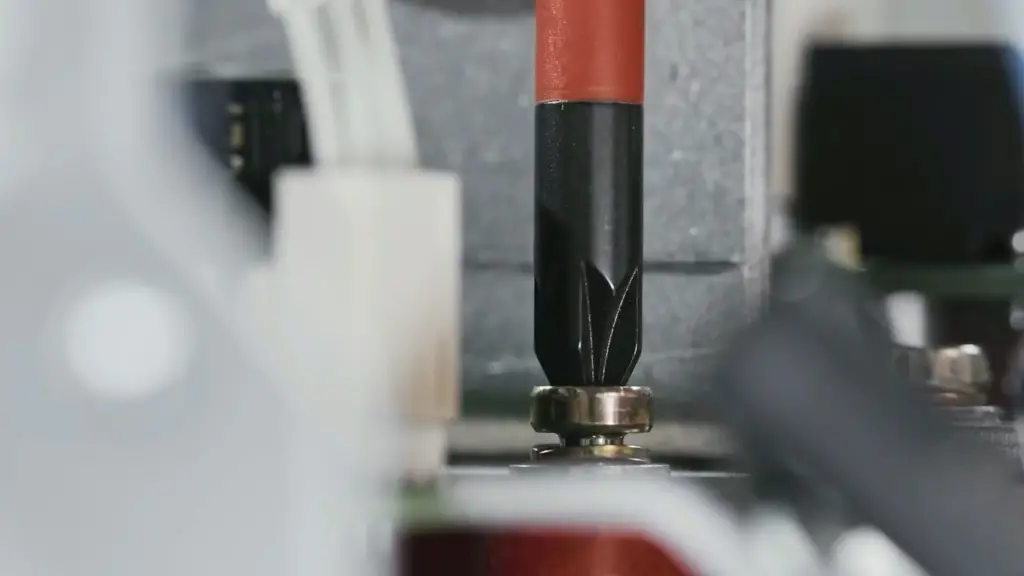
Ability to continually go up and down the ladder
Climbing up and down the ladder is a necessary evil for electricians. No matter how many years of experience you have, there will always be a time when you need to get on a ladder (or scaffolding) to do your job. That’s why it’s important to be comfortable working at heights and have the strength to carry heavy equipment up with you.
If you have trouble breathing or suffer from vertigo, electrician might not be the right profession for you.
Ability to bend and crouch for long periods of time
In many cases, electricians need to be able to twist and turn their bodies into different positions in order to access wires and other equipment. You might need to fix something that’s high up, meaning you’ll be bending your body in half for extended periods of time. Or you might need to squeeze into a tiny space, which requires a lot of crouching and crawling.
This can often mean bending and crouching for long periods of time, which can be physically demanding. So, if you have any issues with your back, knees or hips, then electrician might not be the right profession for you.
Ability to stand around for extended periods of time
Although electricians don’t always have to be on their feet, the job often requires it. There will be times when you’ll need to stand for long periods of time while working on projects. This can be tiring and uncomfortable, so it’s important that you’re physically able to handle it.
Good eyesight and hearing
It’s also vital that electricians have good eyesight and hearing. This is necessary for spotting potential hazards, such as loose wires. It also helps when reading blueprints and other technical documents. And if you’re working in a noisy environment, being able to hear clearly is essential for following safety instructions.
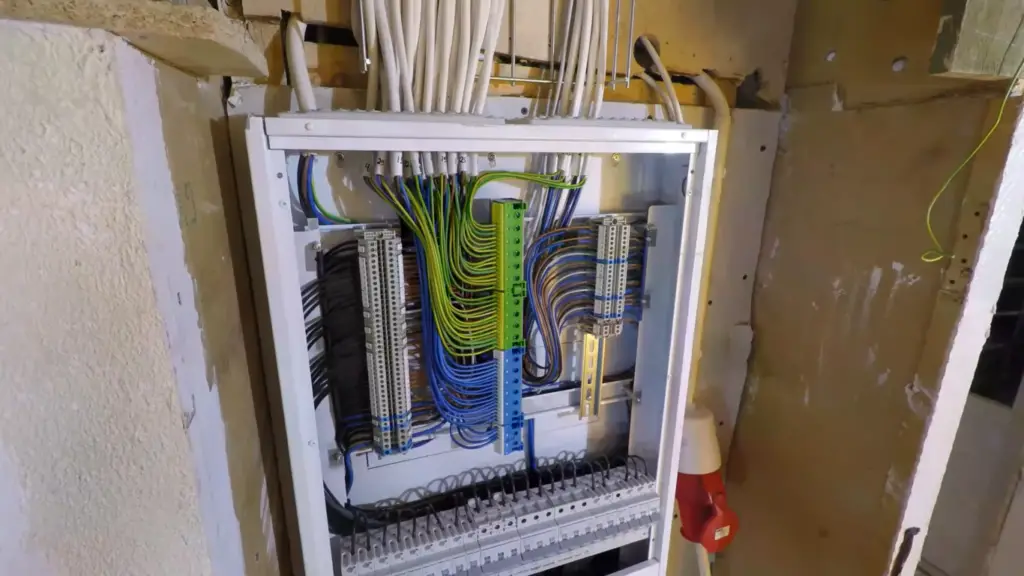
Manual dexterity
Since the job involves working with small tools and equipment, manual dexterity is another one of the essential skills for electricians. This means having the coordination and fine motor skills necessary to use these tools effectively.
Soft skills
While some skills are more technical in nature, others might be more people-oriented. These “soft skills” are essential for every electrician, no matter what their job title is.
Problem solving skills
As an electrician, you will be constantly presented with new problems to solve. Whether it’s figuring out how to wire a new building or troubleshooting an electrical issue, your ability to problem solve will be crucial to your success.
Being able to effectively identify and solve problems is a key part of being a successful electrician. There are a few different problem solving methods that electricians commonly use, such as:
- Analyzing data and information
- Identifying patterns and trends
- Using logic and reasoning
- Experimenting and testing
- Brainstorming ideas
Teamwork skills
As an electrician, you will almost always be working with other people. Whether you’re part of a large team of electricians working on a big project or you’re working one-on-one with a homeowner, being able to work well with others is crucial.
You will need to be able to communicate effectively with your co-workers and clients. This includes being able to listen attentively and speaking clearly. And to complete most projects, electricians need to be able to collaborate and compromise with others.
Flexibility
Flexibility is one of the most important skills for electricians. No two days are alike, and you never know when you’ll be called to solve a problem that’s outside of your normal scope of work. You might need to troubleshoot an electrical issue in a commercial building one day, and then install a new wiring system in a residential home the next.
Business management skills
Many electricians work as independent contractors. This means that they need to be able to not only do the electrical work but also be their own boss and run their business. This requires a number of different skills.
Time management skills
As an electrician, you will often be working on tight deadlines. This means that it is essential for you to have excellent time management skills. By being able to plan your work and schedule your time effectively, you will be able to get the job done on time and avoid any stressful situations.
Customer service skills
For anyone in a service industry, excellent customer service skills are a must. This is especially true for electricians. As an electrician, you will be working in people’s homes and businesses, and it is important that they feel comfortable with you and trust you to do a good job. Good customer service skills will help put your customers at ease and build their trust in you.
Basic math skills
You will need to be able to do basic math for a number of tasks as an electrician. These calculations will usually be done with a calculator but being able to do them in your head quickly will be helpful. [1], [2], [3], [4]
How to Improve Your Skills as an Electrician
Now that was a lengthy list of skills that every electrician must have! And while you might have some of these skills already, there’s always room for improvement. Here are a few suggestions on how you can improve your skills as an electrician:
Utilize your on-job training experience well
The first step is to make the most of your current on-the-job training experience. Whatever company you’re working for, they want you to be the best electrician that you can be. That’s why they’re investing their time and money into your education.
Soak up as much information as you can while you’re on the job. Whenever your supervisor or another experienced electrician is working on a project, take the time to ask questions and learn about what they’re doing. And when it comes time for you to work on a project yourself, don’t be afraid to ask for help if you need it.
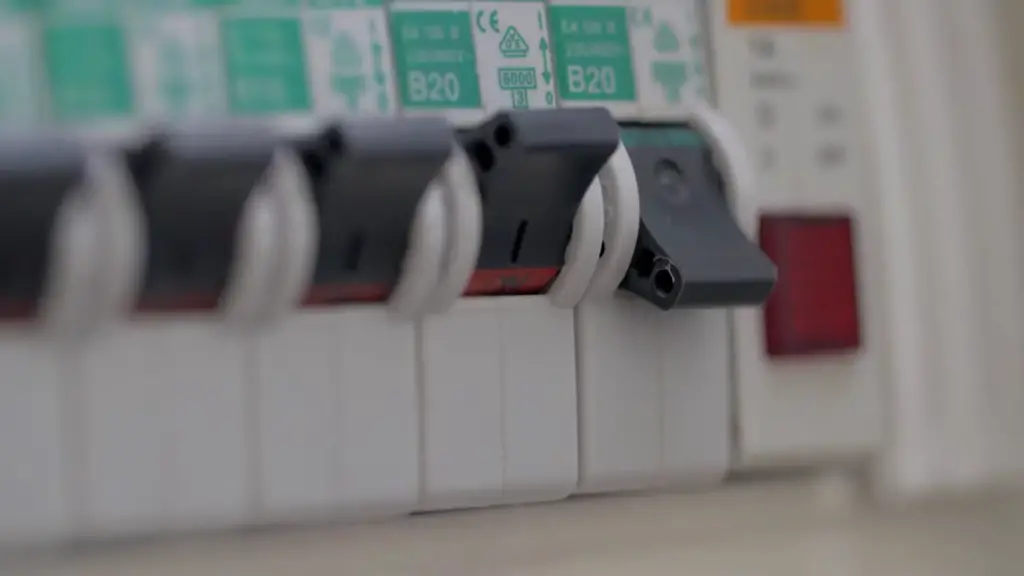
Consider attending educational courses
While on-the-job experience is important, there’s no substitute for a good education. If you want to become a master electrician, you should consider attending educational courses at a trade school or community college. These courses will teach you the theoretical side of electrical work, which will make you a more well-rounded electrician.
Most electricians complete an apprenticeship program that lasts four years. During their apprenticeship, electricians learn safety procedures, blueprint reading, mathematical formulas, and other skills related to the trade.
Seek ways to improve your soft skills in day to day life
Some of the most important skills for electricians are “soft” skills, like problem-solving and critical thinking. And while you can’t learn these skills in a classroom, there are ways that you can improve them in your day-to-day life.
One way to improve your problem-solving skills is to take on new challenges at work. Whenever you’re presented with a new challenge, take some time to think about different ways that you could solve it. And if you’re struggling to come up with a solution, don’t be afraid to ask for help from your supervisor or another experienced electrician.
Another way to improve your skills as an electrician is to seek out ways to improve your soft skills in daily life. This can be anything from working on active listening to taking the time to understand other people’s perspectives. The better you are at communication and collaboration, the easier it will be to work with others – and that includes your customers!
Keep in eye on electrical standards
And of course, one of the most important things that you can do to improve your skills as an electrician is to keep up with the latest electrical standards. These standards are constantly changing, so it’s important to stay up-to-date on the latest information.
One way to do this is to attend seminars and conferences related to the electrical industry. These events are a great way to learn about new developments in the field and network with other electricians.
You can also stay up-to-date on electrical standards by reading trade publications. These publications will often have articles about new electrical standards, so they’re a great resource for keeping yourself informed. [5]
FAQ
Is being an electrician hard?
Electrician is both mentally and physically demanding. The job requires excellent hand-eye coordination, problem solving skills, and the ability to work in small spaces. Electricians must be able to read and interpret blueprints, as well as follow local codes and regulations.
And since you will be working with electricity, it’s also a dangerous profession. One wrong move could result in serious injury or even death.
Do I need to have a high education proof to become an electrician?
No, you don’t need to have a high education proof to become an electrician. However, you will need to have a valid driver’s license and be able to pass a drug test. You will also need to have completed an apprenticeship program or have equivalent experience.
What traits make a good electrician?
Patience, good problem solving skills, attention to detail, manual dexterity, and physical strength are some of the most important traits that make a good electrician.
What are three important qualities that electricians need?
The most important qualities that every electrician needs are excellent hand-eye coordination, good problem solving skills, and the ability to think on their feet. Besides physical dexterity, electricians need to be able to troubleshoot issues and come up with creative solutions to problems.
And you also should have the default soft skills, like being able to communicate and work well with others. No matter how talented you are, if you can’t work well with a team, you’ll likely struggle in the field.
Useful Video: 5 Skills Every Electrician Needs | Career Tips | Start a New Career
Conclusion
Electrician is a hard profession, and it is essential to have certain skills to be a great electrician. These skills are not only for the safety of the electrician but for the safety of those who will be around the electrician as well. If you want to become an electrician, make sure that you have these must-have skills!
In this article we have covered different aspects of what skills an electrician needs. For example, we discussed the importance of being able to read and interpret blueprints. We also talked about the ability to use different tools, as well as being able to troubleshoot different electrical problems. And we added some tips on how to improve your skills!
One of the most important skills that an electrician can have is technical knowledge. Physical capabilities are just as important, if not more. After all, an electrician who is not physically capable of handling the demands of the job is a danger to themselves and those around them.
If you want to become an electrician, make sure that you have these must-have skills! With the right skills, you’ll be well on your way to a successful career in this exciting field. Thanks for reading!
References
- https://www.shrm.org/resourcesandtools/tools-and-samples/job-descriptions/pages/electrician.aspx
- https://www.betterteam.com/electrician-job-description
- https://www.skillsyouneed.com/rhubarb/skills-electrician.html
- https://www.indeed.com/career-advice/resumes-cover-letters/electrician-skills
- https://www.bestcolleges.com/trades/electrical-technology/electrician-top-skills/











Leave a Reply